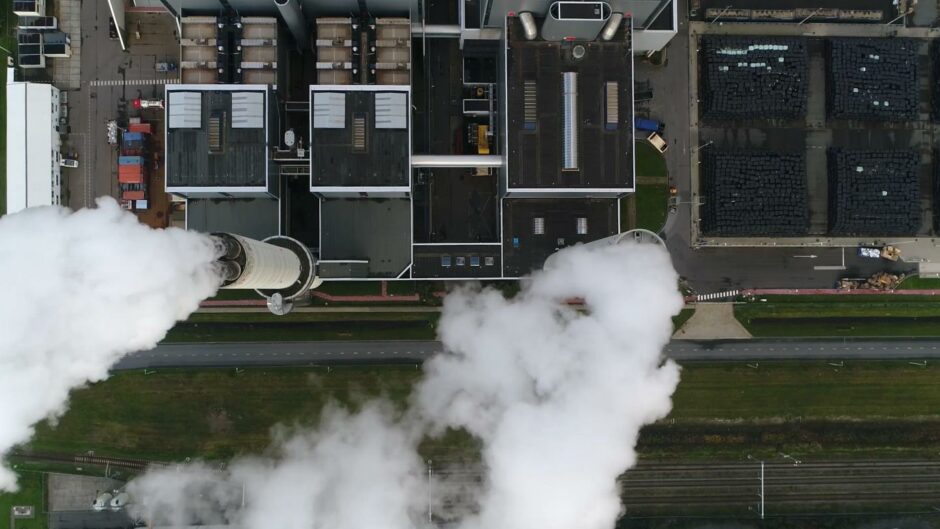
CCS and CCS-enabled hydrogen will speed transition towards decarbonised energy security, writes James Richardson, Director, UK Industrial Decarbonisation at energy technology company Baker Hughes.
Carbon capture and storage (CCS) and CCS-enabled hydrogen are crucial and will empower decarbonised energy security at the pace required to meet global net-zero ambitions.
Unwavering commitment to the sector – from governments and industry – will not only pave the way for the landmark projects that will help to address carbon emissions in the near term, but also provide a transition pathway into which the global supply chain can grow in the decades ahead.
Significant work has already been done. Companies including Baker Hughes, which employs 4,000 people in the UK and more than 10,000 in Europe, have over many years demonstrated proven experience in the technologies that underpin CCS.
The skillset required includes capture, compression and transport, as well as injection and storage. It also covers wells and monitoring, feasibility and FEED, control systems, valves and instrumentation, pipelines, digital field planning, subsea infrastructure, barrier development and well closure services.
The industry, again with Baker Hughes at the forefront, has invested in research with universities, apprenticeships and graduate programmes as well as operating manufacturing and technology development sites. The foundation is in place.
Enabling the net-zero journey
The importance of a successful CCS sector could not be more clear: the technology, according to the International Energy Agency[1], is a key component in the 2050 roadmaps established by nine countries which together account for around 96% of total energy-related CO2 emissions.
CCS is also, according to the same report, a central plank for the market leaders seeking to achieve net zero in oil and gas production, in the manufacture of cement, and in steel production.
These major emitters recognise carbon capture as a proven application that can tap into existing skillsets and supply chains to decarbonise industrial infrastructure in the shorter term. It is also an option for wider decarbonisation among hard-to-abate process industries.
And when using CCS to enable blue hydrogen as a transitional supply – as currently proposed by governments in the UK and Norway – the technology ensures low-cost energy can continue to be supplied while the hydrocarbon economy transitions to a zero-carbon alternative.
Ensuring a smooth transition
Every industrial economy relies on the resilience of its energy sources, and rightly values predictable costs and consistent supply volume – an ever more crucial factor given the interdependence at the heart of the modern industrial economy.
As just one example, recent gas-price highs in the global wholesale market not only impacted direct consumers but also fertiliser companies as well as the food and agriculture sector. Continuity in pursuit of carbon reduction measures will ensure minimal disruption across multiple sectors and safeguard the industries at the heart of our economy.
A transition with CCS at the forefront will also reduce ‘stranding risk’ – the threat of assets, resources, skills or knowledge reducing in value as the result of changing market dynamics. For example, several CCS proposals include the re-purposing of existing assets. These projects also support the aims of programmes such as the UK’s North Sea transition deal to refocus high-carbon supply chains.
Initiatives like the transition deal will help to retain high-skill North Sea employment – generally outside a country’s wealthy major cities – to drive lower carbon emissions. The resource base is simply too valuable to be stranded or lost.
Meeting the big challenges
The necessary transition of the energy sector to net zero can be achieved with minimal disruption to essential industries, and at a faster pace, with carbon capture and storage and CCS-enabled hydrogen.
The technologies required are largely in place and have been honed by practical deployment across industries including oil and gas. Further, leaning hard on CCS will preserve the value inherent in the supply chains built up over many years – protecting hard-won innovation, an unrivalled skillset, decades of experiences and a dedicated workforce.
It is crucial that projects based on CCS and CCS-enabled hydrogen are encouraged, through policy, planning and investment, to proceed at pace. Companies including Baker Hughes recognise the size of the opportunity, certainly, but more importantly understand the imperative of achieving decarbonisation while simultaneously protecting security of supply.
